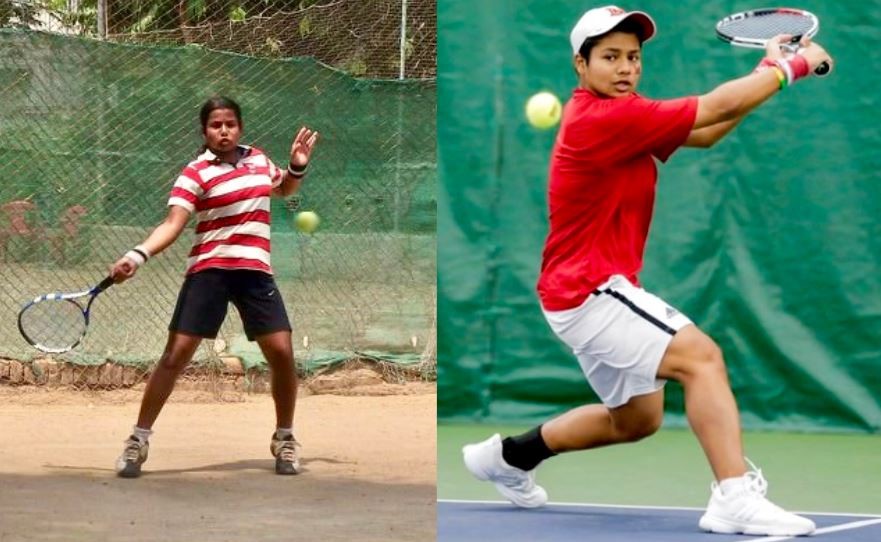Born in the bustling streets of Guwahati, the capital city of Assam, India, Kalita grew up amidst continual unrest due to fighting over the India/Bangladesh border 150 miles from her home.
In 2008, tensions escalated when a series of bombs in Assam killed 88 people and injured 500. Kalita, then eight-years-old, vividly remembers seeing the smoke from her school and hiding underneath her desk with her frightened classmates.
“It was tragic as we did not know what was going on. I remember being in shock. Kids were crying,” she described. ”Then after about 30 minutes, there was a curfew given by the government, and our parents rushed to pick us up.”
Needing an outlet from the pain, tennis became Kalita’s escape from the chaos.
Introduced to tennis by her mother as a means to channel her energy and instill discipline, Kalita fell in love with the sport and quickly became one of the best junior players in the nation.
“Tennis has given me everything,” stated Kalita, who started training at North East Tennis Foundation in Guwahati. “I can be myself in the sport, express emotions, and feel included in the game.”
Kalita’s dominance on the court was evident. After winning multiple state and regional tournaments, Kalita, at 14, ascended to become the #1 player in the state of Assam, #12 in India, and achieved a #490 ITF world ranking.
At 15-years-old, Kalita’s resolve was shown again when she left her family to join the Team Tennis Academies in New Delhi. Unable to afford training costs, coaches permitted her to train by becoming a paid hitting partner and using her earnings for rent and training expenses. Her journey eventually led her across the world to Oxford, OH, where she played Division I NCAA tennis at Miami University (OH) before pursuing a graduate degree in Sport Management at Florida State University.
After becoming an assistant coach at Swarthmore College in Swarthmore, PA, for one year, Kalita joined JTCC in June, 2023. Responsible for both individual and group instruction, Kalita emphasizes a coaching philosophy that values a cooperative environment between the player and coach.
“There should be a balance between listening to athletes and telling them what to do, as players need to be heard,” Kalita explained. “You have to understand it’s not a cookie-cutter approach with everyone. Every athlete is different, and you need to understand the athletes as an individual.”
Now 25-years-old and looking forward to her future, Kalita describes her biggest goal moving forward is “being able to support my brother financially through college.”
When asked what she would like people to take away from her story, Kalita responds, “Always keep finding solutions. Life is about problem-solving. There will be bad days, but you have to keep trying to get through them, as there will be good days as well.”



